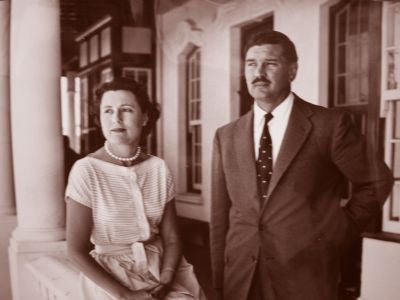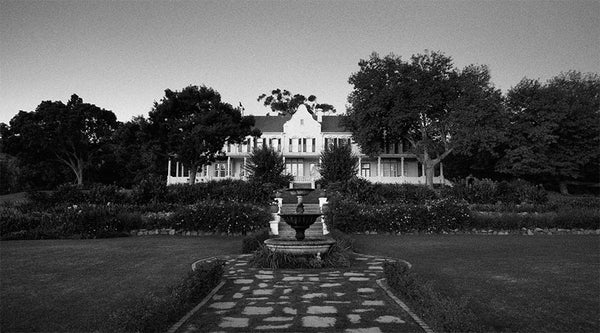News
How The Graaffs Became 'Sirs'
It's a question we often get asked at De Grendel. How did a family way down in the south of Africa come to carry this title? How did a former herdboy from a humble background earn it?
The baronetcy that embellishes the De Grendel name was born out of exceptional drive and persistence; from a man who had very little schooling, but a significant impact on the world around him. Sir David Graaff, Bt, was from a poor family on a farm in Villiersdorp where he went from being a herdboy, having just finished third grade, to fulfilling a versatile range of jobs and roles in and around Cape Town.

Sir De Villiers Graaff (2nd Baronet) and his wife, Helena.
Regardless of his premature exit from proper education, David Graaff showed that he had an exceptional brain for business at an early age. Dawie was only 11 when he left the farm where he was born in the Overberg for Cape Town to work in the butchery of a relative, Jacobus Arnoldus Combrinck, which he took over at the age of 18.
His innovations lay in the field of refrigeration and the meat industry with an extensive distribution network for frozen products. He bought refrigerator carriages for transporting fresh foods on the growing South African rail network. This large-scale refrigeration of meat, fruit and other products was unprecedented at the time and thus he was able to make a large fortune. In fact, he made such rapid progress that within a few years he was regarded as the pioneer of cold storage in South Africa.
As a successful young businessman, Graaff demonstrated a passionate sense of social responsibility early on as well. At 23 years old, he was elected as a Cape Town city councillor and at the age of 32 he became mayor of the Mother City. During his time as councillor, and especially as mayor (from 1890 to 1892), the city was thoroughly modernised, making a much more inhabitable place of the dirty city, derided by some writers at that time as the City of Stenches.
He played a decisive role in bringing electricity to Cape Town, and the first power plant was named after him, Graaff Electrical Lighting Works. The power plant is now a historic monument next to the Molteno Reservoir in Oranjezicht.

Moreover, as benefactor he set an example for South African business people by way of his assistance to various charities, in particular by donating large amounts for educational purposes. He funded the school named after him in his home town, Villiersdorp, and the De Villiers Graaff High School remains a monument to the high premium he had placed on good education and teaching.
Graaff was a bachelor when the British honorary titles were awarded to South Africans shortly after unification. Initially reluctant, he received a baronetcy in 1911. Two years later the 53-year-old bachelor, then a member of the nobility, married a clergyman’s daughter 30 years his junior.
Three sons were born out of his wedding to Eileen van Heerden, who became Lady Graaff. Graaff declared in his testament that De Grendel should be associated with his hereditary title, and that it should provide the baronetcy with a home in South Africa
So, what does the title mean? A baronetcy, the only British hereditary honour which is not a peerage, is part of the centuries-old tradition of honorary titles conferred by the British crown. This particular title dates back to 1611, when King James I introduced it to collect funds. A baronetcy, like a lordship, is a hereditary title, mainly for male descendants, and has a territorial designation. A baronet ranks between a baron and a knight, but does not automatically earn a place in the British House of Lords. Baronets are not formally deemed to be noble, although they are widely regarded as being members of the aristocracy.

